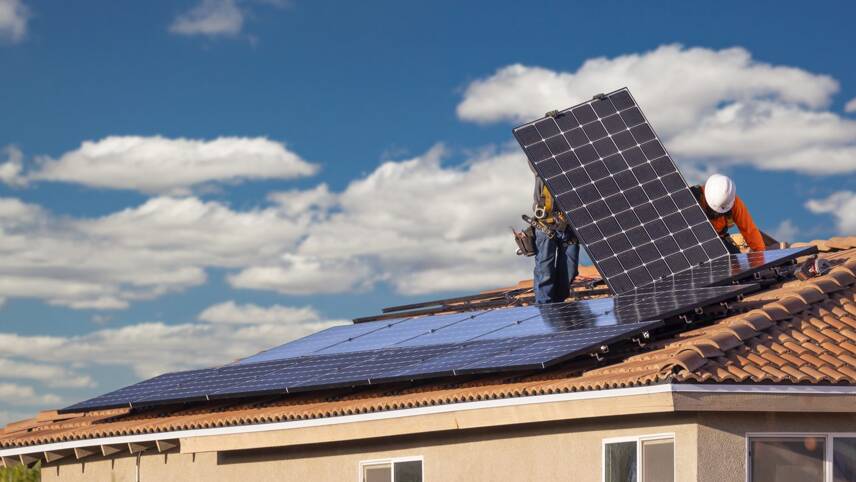Register for free and continue reading
Join our growing army of changemakers and get unlimited access to our premium content

Projects can range from rooftop solar to clean heating networks
The Government has confirmed that rural and local communities will soon be able to apply for a portion of a new £10m Community Energy Fund.
Applications for the grant open in the Autumn and the Government will prioritise solutions that provide local jobs and improve energy security. EV charging, low-carbon heat schemes, battery storage and renewables projects are all eligible for the fund.
Minister for Nuclear and Networks Andrew Bowie said: “Local communities are at the heart of our plans to boost our energy security and grow the economy. The Community Energy Fund for England will empower communities to do just that.
“With it, they’ll be able to drive forward innovative energy projects that will have a lasting positive impact, bringing costs down, building stronger communities, and securing clean energy for generations to come.”
The Government believes that the energy projects could have the potential to expand by attracting investment from the private sector.
Surplus money generated from the schemes will be invested locally through projects such as community gardens and youth employment groups.
Solar costs falling
It comes in the same week that Energy UK highlighted that solar farms are the cheapest form of energy in the UK.
The claim is based on revised estimates from the Department for Energy Security and Net Zero on the levelised costs of energy. It is the first update in three years. The revised estimates account for findings by consultancy WSP, which increased the assumed size of the exemplar solar farm from 16.4MW to 20MW. As a result, the capital costs per kilowatt have fallen from £730 to £615.
For projects commissioning in 2025, the revised estimates suggest that costs for combined-cycle gas turbines (CCGTs) will reach £114/MWh, compared to just £41/MWh for solar farms. This would be a £6 reduction in three years.
Energy UK also points out that 20MW is small compared to the sizes of solar farms now in the pipeline. A 500MW farm has been approved for Longfield in Essex, for example.
“In Britain, power generated by the sun is now a third of the cost of power made from burning gas and it will only get cheaper. The fastest way to permanently drive down energy bills is to build more renewables,” Solar Energy UK’s chief executive Chris Hewett said.
However, separate research suggests that planning restrictions could hinder this growing pipeline of projects.
Earlier this year, the Government set targets to decarbonise the power sector with a fivefold increase in solar by 2035, up to 70GW, enough to power around 20 million homes.
The cross-party Environmental Audit Committee (EAC) cautioned Secretary Grant Shapps of Energy Security and Net-Zero that the UK is at risk of significantly falling short of the 2035 goal without prompt and decisive measures.


Please login or Register to leave a comment.